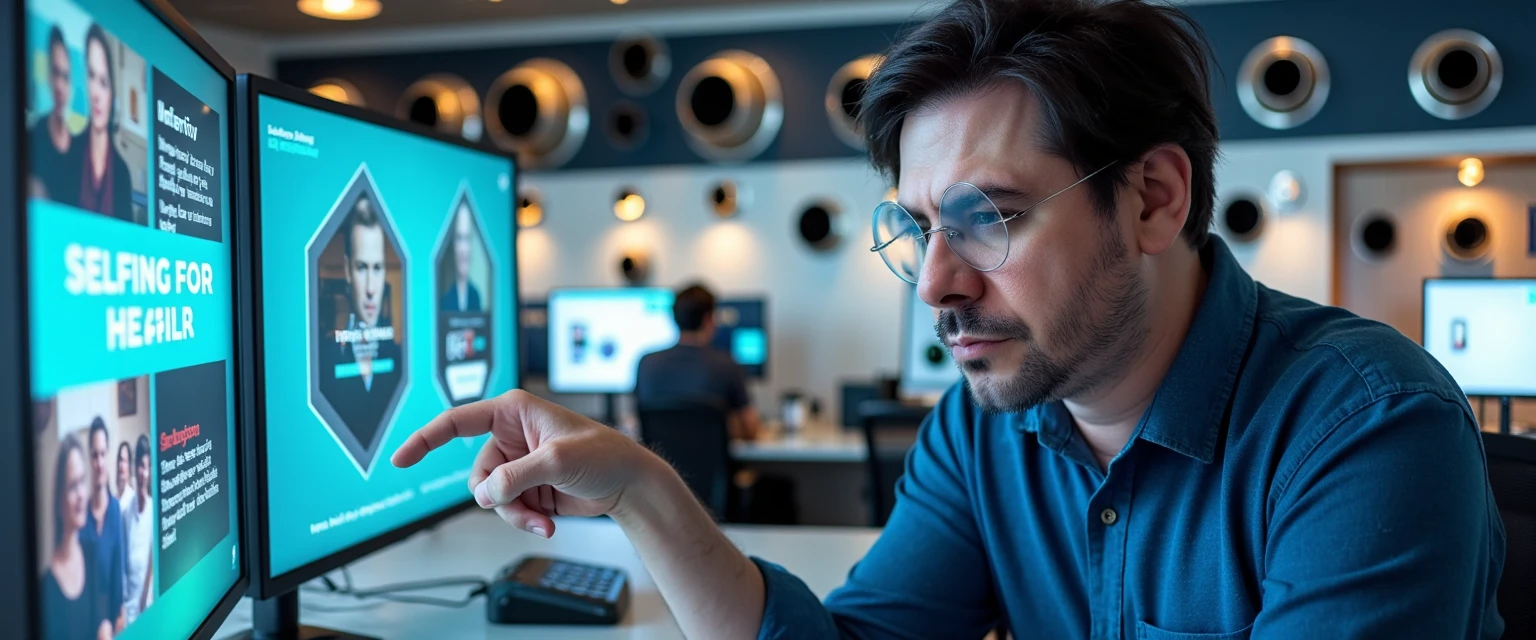200+ Experts and Nobel Laureates Call for Global Regulation of AI as Professionals Become ‘CEOs of Agents’ - Why This Paradox Defines Artificial Intelligence's Most Critical Moment
September 23, 2025 | by Matos AI

Imagine for a moment: more than 200 of the brightest minds on the planet - including 10 Nobel Prize winners and executives from Google, Microsoft, OpenAI and Anthropic - signed a letter at the UN General Assembly calling for global “red lines” for artificial intelligence. On the same day, other experts announced that we will all soon become “CEOs of AI agents”.
This paradox is no coincidence. It reveals exactly where we are: at the most critical moment in the history of AI.
The Warning Cry of the Giants of Science
When Nobel laureates, scientists and executives call for regulatory framework to limit AI use, we're not talking about technophobia. We're talking about scientific responsibility.
Join my WhatsApp groups! Daily updates with the most relevant news in the AI world and a vibrant community!
- AI for Business: focused on business and strategy.
- AI Builders: with a more technical and hands-on approach.
The letter presented at the UN is crystal clear: autonomous lethal weapons systems, mass surveillance, social scoring, cyberattacks and control of nuclear arsenals via AI should be banned globally. The deadline? By the end of 2026.
In my experience supporting companies in adopting AI, I see that many organizations still haven't grasped the magnitude of what's at stake. It's not just about operational efficiency or cost reduction. It's about the future of humanity as we know it.
But here's the fascinating thing: while the biggest brains on the planet are asking for the brakes, the market is accelerating towards a new professional reality.
The Age of AI Agent CEOs
A recent analysis by Deloitte revealed that 62% of US companies are already testing AI agents to automate entire workflows. No more isolated tasks, but entire processes: from searching for suppliers to tracking deliveries.
What does this mean in practice? That very soon - perhaps it's already happening in your company - each professional will have an invisible team of AI agents working 24 hours a day.
Think about it: you'll no longer be just a lawyer, doctor or salesperson. You'll be the CEO of a team of specialized agents. A conductor conducting a digital orchestra that never stops playing.
Accenture projects that by 2030, more than 40% of repetitive and administrative work will be absorbed by these technologies. The question is not “if” this will happen, but “how prepared are you to lead this team”.
The Financial Market Has Got the Message
Guilherme Benchimol, founder of XP, got straight to the point in a recent statement: “The future requires investment professionals to be heavy users of AI”.
The figures he presents are impressive: professionals who adopt AI and big data can increase risk management by up to 30% and customer lifetime by up to 100%. Tools like Salesforce make it possible to map history, predict needs and personalize offers, increasing retention by up to 50%.
But here's the crucial pointBenchimol clearly differentiates between “using CRM” and “being a heavy AI user”. It's not enough to have the tool. You have to master orchestration.
This reminds me of something I always say in my consulting projects: technology is not the differentiator. The ability to extract strategic value from it is.
The Reality Behind the Irregular Border
But it's not all flowers in this new world. An in-depth analysis published in JOTA reveals the concept of “irregular technological frontier” of AI.
What does this mean? That AI performs completely unevenly on seemingly similar tasks. It excels at idea generation and argumentative analysis, but fails miserably at basic arithmetic and interpreting complex quantitative data.
Harvard Business School studies have shown that junior consultants had productivity gains three times greater than seniors using AI, but in complex tasks, the quality of deliveries with AI was 15% lower.
And here comes an even more provocative perspective.
The Neuroscientist's Counterpoint
Miguel Nicolelis, one of the most respected names in neuroscience worldwide, classified AI as “one of the greatest pitfalls humanity has ever produced”.
He coined the term NINA: “Neither Intelligent nor Artificial”. His argument is fascinating: if even neuroscientists can't define what intelligence is, how can we say that machines have it?
Nicolelis warns that delegating functions to machines can weaken the human brain - after all, we work on the “use it or lose it” principle. It's an important reminder of the risks of technological dependence.
But here's my thought: is the point not to avoid AI, but to learn how to use it in a way that enhances, rather than replaces, our cognitive capacities?
The Brazilian Moment
While the world debates regulation and risks, Brazil has a unique opportunity. We are in a privileged position to learn from global mistakes and successes, creating our own balanced approach.
What I see in my work with Brazilian companies is a growing appetite for practical AI solutions, but still a lot of ignorance about how to implement them strategically.
This is where our opportunity lies: to develop a Brazilian approach to AI adoption that is both innovative and responsible, productive and humane.
What This Means For You
If you are a professional or lead a company, you need to understand that we are living in three simultaneous realities:
- The regulatory reality: Global frameworks are now being defined
- The operational reality: AI agents are already transforming workflows
- The competitive reality: Those who don't adapt will be left behind
The central question is not “should I use AI?” but “how can I become an effective conductor of this technological orchestra?”
This requires developing new skills: not just technical skills, but skills in leadership, ethics and strategic discernment.
Navigating the Irregular Frontier
AI's concept of the irregular frontier teaches us something fundamental: we need to learn to recognize where AI shines and where it fails.
In my consulting projects, I always advise companies to map these boundaries in their own contexts. Which processes genuinely benefit from automation? Where is human intervention still irreplaceable?
This capacity for discernment will be what separates true “AI agent CEOs” from mere tool users.
A Future of Responsible Possibilities
What excites me about this historic moment is not the sensationalist headlines about AI replacing humans. It's the possibility of creating a future where technology and humanity enhance each other.
When Nobel laureates call for regulation, they are not trying to halt progress. They are trying to ensure that it is built on ethical and sustainable foundations.
When Benchimol talks about “heavy users” of AI, he is not advocating the dehumanization of customer service. He's showing how technology can make customer relations more precise and personalized.
When neuroscientists like Nicolelis warn of the risks, they are not being facetious. They are reminding us to keep our humanity at the center of the equation.
The Time to Act Is Now
This paradoxical moment - between regulation and adoption, between promise and skepticism - is exactly where we need to be. It is in the tension between extremes that we find the most intelligent paths.
For Brazilian professionals and companies, this means:
- Start experimenting with AI agents in specific processes
- Develop clear criteria on where to use and where not to use AI
- Invest in training to become true “digital maestros”
- Actively participate in discussions on regulation and ethics
We cannot afford to wait for the future to be decided by others. We need to be active protagonists in this transformation.
In my mentoring and consulting work, I help executives and companies navigate exactly this transition: how to become an effective leader in the age of AI agents, while keeping humanity and ethics at the center of strategic decisions. Because in the end, the future will not be built by machines, but by humans who know how to orchestrate them wisely.
✨Did you like it? You can sign up to receive 10K Digital's newsletters in your email, curated by me, with the best content about AI and business.
➡️ Join the 10K Community here
RELATED POSTS
View all



